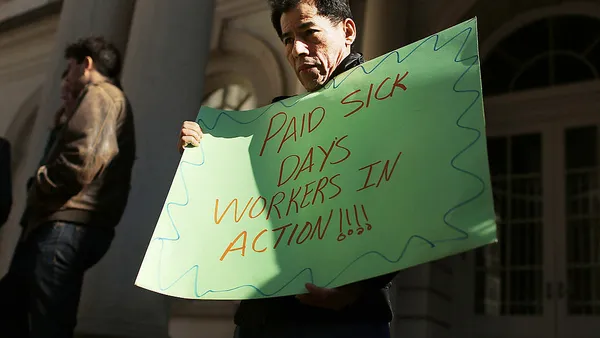Dive Brief:
- According to a new report from researchers at the University of Santa Cruz and UC Berkeley in California, employee compensation at mainly upscale restaurants is highly correlated to race.
- An article at NPR lays out the details of the report, which say the pay disrepancy is based on the fact that employees in "back of the house" jobs -- washing dishes, clearing tables and cooking -- earn lower pay than servers and bartenders at high-end restaurants - as much as five times less.
- While the pay difference is somewhat expected by the nature of the business (at least until a no-tipping policy comes along), a racial divide is starkly present; caucasian employees overwhelmingly fill the higher-paying jobs. On the flip side, Latinos, blacks and other minorities receive much closer to poverty-level pay. Also, gender-wise, white men on average in the U.S. receive 25% more than women, regardless of race.
Dive Insight:
Chris Benner, a professor of environmental studies at UC Santa Cruz and study co-author, told NPR's The Salt that the racial segregation within the nation's 11 million restaurant workers may not be intentional. It results, Benner says, from factors that cannot easily be eliminated or addressed through policy and legislation. For example, Benner told The Salt, Latinos tend to apply for certain types of jobs, like dishwasher, line cook and busser. Likewise, white applicants don't often look to land those jobs, instead opting for higher-paying bartender and server positions.
But even when men and women of color land waiting or bartending jobs, they tend to be paid less -- an average of $10 per hour instead of $11.14 for white workers. Women, in particular, tend to get the lowest wages and are often denied promotions.
The article points out that with the recent announcement that New York restaurateur Danny Meyer has eliminated tipping in his locations, it may be another step toward "equalizing the skewed pay scale." In an interview with NPR, Meyer said servers' take-home pay at upscale eateries has become bloated due to tipping, but the pay of workers at non-tipping jobs has remained stagnant.














